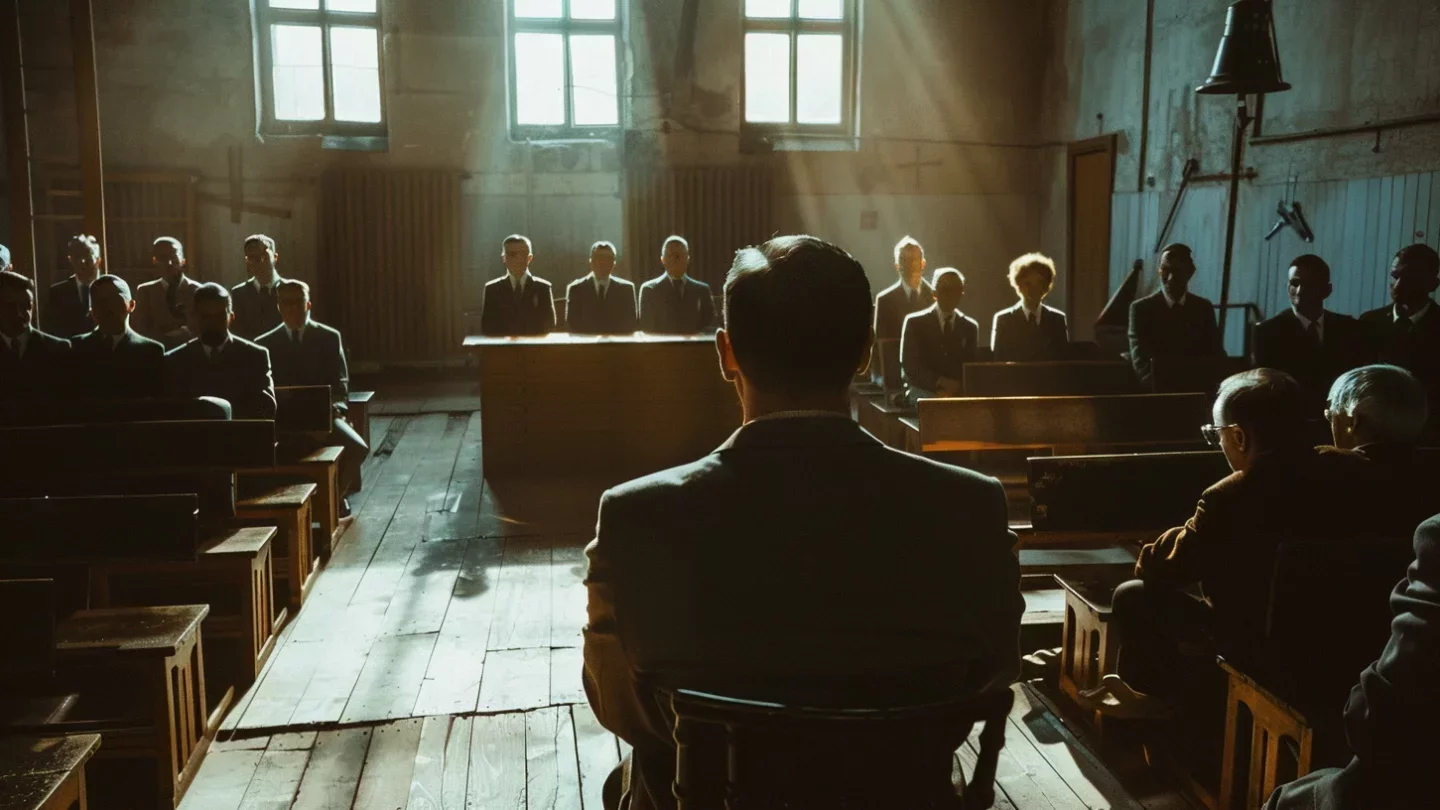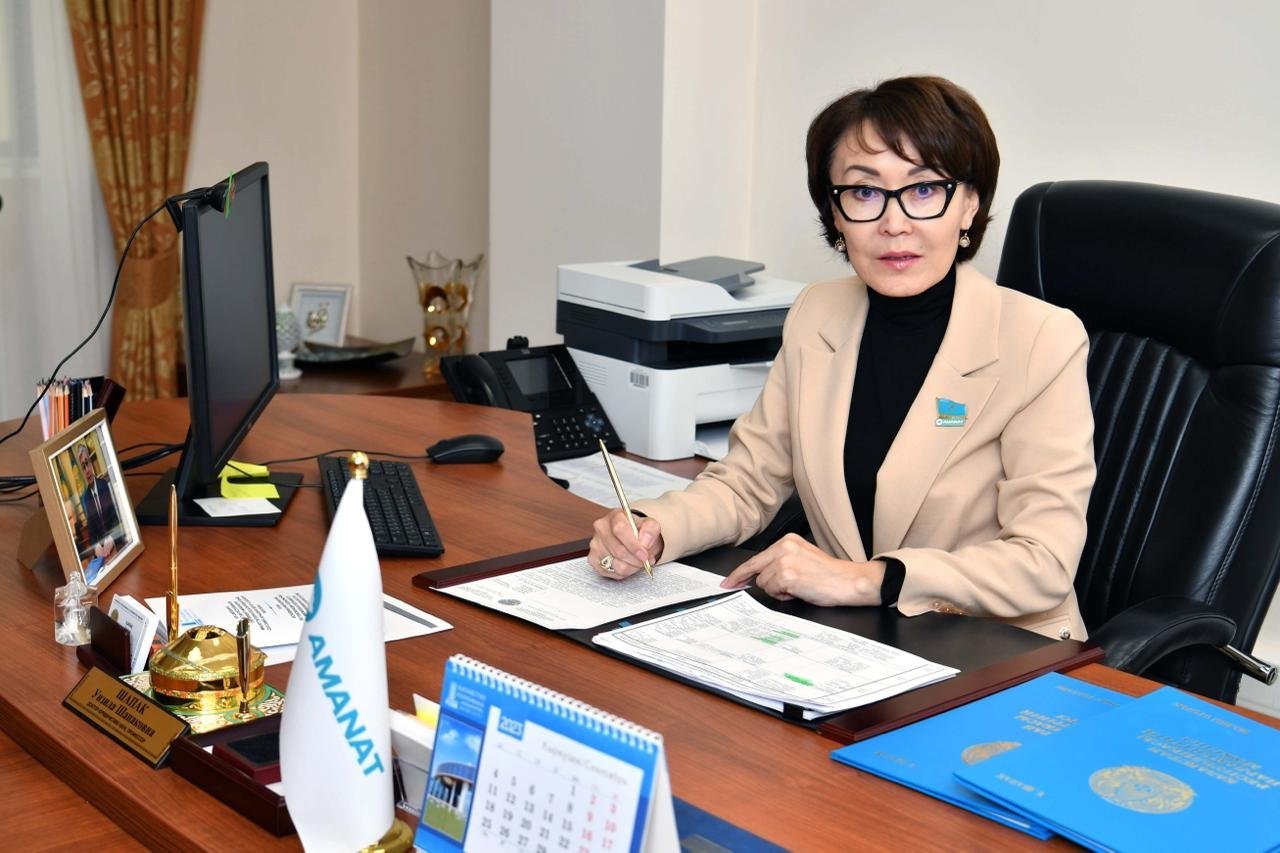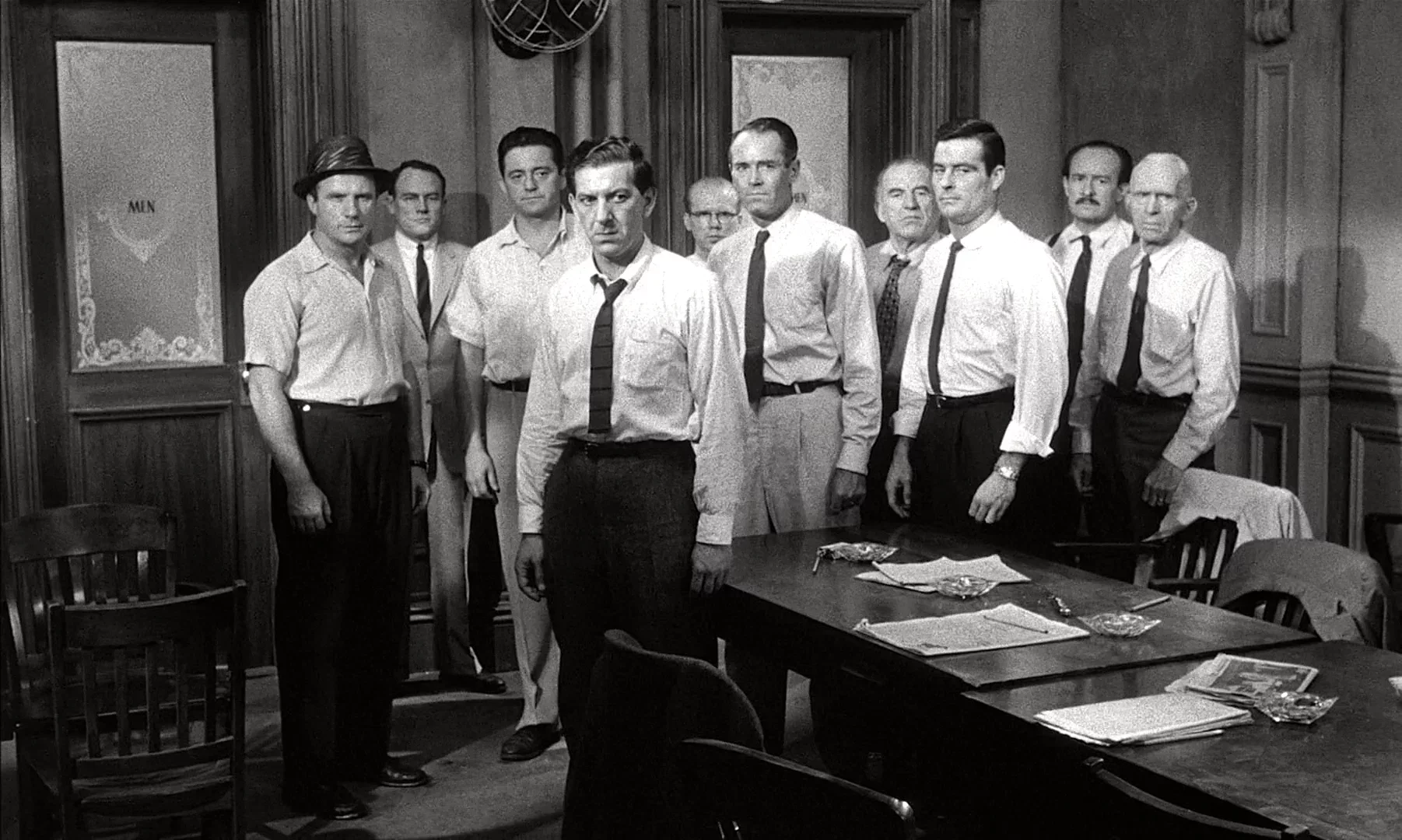How Trial By Jury Is Organized in Kazakhstan
 Photo: Midjourney Neural Network
Photo: Midjourney Neural Network
In Kazakhstan, judges overturn jury verdicts for formal reasons. They also often attempt to pressure the jurors. Experts told about what prevents the development of a progressive institution of justice to Orda.kz.
A Long Story
Majilis deputy, Doctor of Law, Unzila Shapak noted that the institution of juries could greatly increase public confidence in the court and the government as a whole.
Trial by jury provides a unique opportunity for ordinary citizens to exercise justice and have it exercised on them by their peers. Giving citizens the power to make decisions helps to improve the relationship between the state and society, says Unzila Shapak.

Jury trials appeared only in 2007 and were initially limited. From 2007 to 2009, courts with juries could only consider criminal cases involving the death penalty or life imprisonment. There were few such cases: in 2007 there were only 36, in 2008 - 44, and in 2009 - 65. According to rough estimates, less than 9% of all cases concerning particularly serious offenses passed through courts with juries.
At that time, both in society and in government structures, it was widely believed that Kazakhstanis were not ready to trust the institution of juries and participate in its work.
In the period from 2010 to 2012, the jurisdiction for jury trials was expanded with cases of all particularly serious crimes. This led to a tenfold increase in the number of cases under consideration, added Unzila Shapak.
The authorities would later have a change of heart. In 2013, they reduced the jurisdiction, allowing jury involvement only in cases with the potential punishment being the death penalty or life imprisonment. As a result, in 2014, jury trials considered 65 cases, in 2015 - 42 cases.
A new wave of progressive reforms has affected jury trials after the adoption of the national plan "100 Concrete Steps". In 2015, criminal proceedings in which jurors could be involved expanded to 14 particularly serious crimes.
Five years later, the scope of jury trials was expanded again. As of January 1, 2020, their jurisdiction has been extended to almost all particularly serious crimes.
Since January 1, 2024, legislative amendments coming into force led to the jurisdiction of jurors being expanded to 13 more serious and less serious crimes.
The scope of the jury trials now includes 43 articles, including illegal organ removal (Article 116 of parts 2 and 3 of the Criminal Code of the Republic of Kazakhstan), torture (parts 2 and 3 of Article 146 of the Criminal Code of the Republic of Kazakhstan), raiding (part 2 of Article 249 of the Criminal Code of the Republic of Kazakhstan), as well as illegal hunting and fishing entailing serious consequences, violation of traffic regulations that caused the death of two or more people, and other crimes.
How to Become a Juror
Only citizens included in the unified list of candidates, formed by the local akimat, can participate in jury duty. You must be registered at your place of residence in your city or village and comply with the requirements of Article 10 of the Law "On Jurors".
That is, one must be 25 years or older at the time the list is being drawn up, not have an outstanding or uncleared criminal record, and not be officially recognized by a court as legally incapable or impaired.
Judges, prosecutors, investigators, lawyers, civil servants, and military personnel, as well as law enforcement officials, cannot be on the list. Persons registered for mental and behavioral disorders, including those related to the use of psychoactive substances, cannot be jurors.
You can withdraw from the list of candidates with a written application: if you do not speak the language in which the proceedings are being conducted, if you are physically or mentally unable to perform a juror’s duties, if you are over 65 years old, or if you are a member of the clergy.
Akimats are required to draw up primary, unified, and reserve lists of candidates. At the same time, local executive bodies have the right to request information from government agencies, organizations, and citizens necessary to verify compliance with the requirements for jury candidates.
To form a panel, the judge must adopt a resolution on the appointment of a case to be considered by a court trial by jury. The number of candidates is to be indicated. They are selected by the secretary of the court session from the akimat’s unified and reserve lists. They draw up the preliminary list of candidates with their surnames, first names, patronymics, and home addresses. They receive notices indicating the date and time to come to the court no later than seven days before the start of the trial.
These notices are mandatory. A candidate may be held administratively liable for failure to appear in court without a valid reason.
On the specified day, candidates undergo a multi-stage selection process. Issues concerning their exemption from participation in the case, recusals, motivated and unmotivated recusals, and others are resolved during it. The judge may request additional candidates if fewer than 25 people have shown up, or after all the procedures, there are less than 17 of them. The court then adjourns and invites the necessary candidates from the reserve list.
The same person cannot be a juror more than once a year.
After selecting the required number of candidates, a draw is conducted. It results in the forming of a main panel with ten jurors and two alternate ones.
Jurors are paid either at the end of the consideration of a particular case. If the case is longer than expected, then they are paid monthly. The payment is half of the official salary of a district court judge and a court equivalent to it (with up to a year's experience), but not less than the average salary of a juror at his place of main work in proportion to the time present in court.
The time of performance of duties by a juror in court is taken into account when calculating the length of service. When performing the duties of a juror, a person retains their place of main work. Dismissal of a juror while performing duties in court or transfer to a job with a lower salary is prohibited by law.
What Powers Does The Jury Have?
The Code of Criminal Procedure determines the rights and duties of jurors. Panel members, including reserve members, have the right to:
- Participate in examining evidence considered in court
- Ask questions to the participants of the process through the presiding judge
- Participate in viewing physical evidence and documents, in the examination of the area and premises, and in all other activities in the judicial investigation
- Reach out to the presiding judge for explanations of the norms of legislation, as well as the content of documents announced during the court session and on other issues related to the case that are not clear
- Write notes during the court session.
The juror is obliged to:
- Behave in an orderly manner in the court session and obey the lawful orders of the presiding judge
- Appear at the time specified by the court to perform the duties of a juror, as well as to continue the trial if a break is announced in the court session or the hearing of the case is postponed
- if it is impossible to appear in court, notify the presiding judge in advance of the reasons for the absence.
Jurors are not entitled to:
- Leave the courtroom during the hearing of a case
- Come into contact with persons who are not members of the court during the hearing of the case, without the permission of the presiding judge
- Collect information during the proceedings of the case outside the court session
- Disclose information about the circumstances that became known to them in connection with their participation in a closed court session, as well as violate the confidentiality of the consultation room.
Guarantees of Impartiality
There are several mechanisms for confirming the objectivity and impartiality of the jury so that the parties to the trial along with society can trust the decision made by the panel.
The first one operates at the selection stage when the presiding judge must learn what the candidates know about the circumstances of the case to be considered. The main condition is a lack of knowledge of the circumstances. It is believed that this can guarantee the formation of an unbiased opinion.
The second mechanism - if a candidate demonstrates a biased opinion or their objectivity raises reasonable doubts for the presiding judge, they will be relieved.
During court sessions, the jury bench is usually located opposite the dock, at a distance from those present in the courtroom. This is the third mechanism for protecting the panel from unauthorized contact with the parties to the process and their possible influence on the jury's decision.
The presence of panel members in the consultation room and participation in the examination of evidence is considered the fourth mechanism guaranteeing impartiality.
The fifth mechanism is the oath taken by all members of the panel. They take it to perform their duties honestly and impartially.
The circumstances related to the defendant's previous criminal record, their being recognized as a chronic alcoholic or drug addict, as well as other circumstances that may cause prejudice against the defendant, are not subject to trial by jury.
The decision of the jury based on the results of the consideration of the case consists of answers to three main questions:
- Has it been proven that the act occurred?
- Has it been proven that the defendant committed this act?
- Is the defendant guilty of committing this act?
Additional questions may arise.
A panel of 10 jurors decides with the judge presiding over the case. The judge’s vote is equal to the votes of the jury. Including the judge's vote, there are 11 votes in total. The decision is made by a majority. When passing a sentence, the judge is obliged to follow the decision taken by the panel.
Judges cannot pass a guilty verdict if the panel has found the defendant innocent, and vice versa. The judge can only determine the penalty if the defendant is found guilty.
What's The Catch?
Experts call the judge’s participation in the discussion and decision-making by the jury a key issue in Kazakhstan’s jury system. Kazakhstan has a model similar to the German "Scheffen court” - a mixed panel. This is where Kazakhstan’s model diverges with the systems in the USA and the UK. In these countries, the jury confers independently. The participation of judges is not allowed, as it is believed that a professional judge can influence the final verdict.

As explained by Majilis deputy, Abzal Kuspan, there is already a proposal to switch to classic jury trials via a bill. Kuspan currently leads the working group discussing amendments to three codes at once: the Criminal Code, the Criminal Procedure Code, and the Penal Enforcement Code.
I know of situations when the judge persuades the jury, adjusts it, exerts certain pressure. The jury has no legal education, whereas the judge is a professional lawyer. And he can, based on articles and norms, convince the jury how to vote best. Therefore, it is proposed to make an amendment so that the jury themselves make a decision,told by Abzal Kuspan.
While the amendments are still being formed, the working groups are considering various proposals. The deputy pointed out another important moment, i.e. the overly frequent cancellation of court sentences with the participation of juries in appellate instances.
There are a lot of such cases. The jury decides to acquit. The regional court finds any grounds, not quite on the merits, purely procedural violations, cancels the verdict and returns the case for consideration again. I can state this precisely, and I have talked about it in my working groups — higher courts are ready to overturn decisions of courts with jury participation on any grounds until they pass a guilty verdict. This is currently happening out in the open, said Abzal Kuspan.
Meanwhile, the deputy spoke about the need to implement a mechanism for verdicts passed by jury trials.
It is necessary to put up a legal barrier so that, on formal grounds, sentences handed down by courts with the participation of juries are not overturned. Formal grounds are when the judge did not specify any article during the preparation of the verdict, the judge did not refer to any specific norm. This should not be the basis for canceling a verdict on the merits,
the deputy believes.
Whose Interest?
According to experts, the investigating authorities and the prosecutor's office are most keen on there not being jury trials. They make every effort to ensure that the judicial system has an accusatory bias.
We are incapable of moving away from the old Soviet school of thought in any way. Even in the mid-90s, in the post-Soviet period, when we studied, professors openly said that the prosecutor was in charge of the criminal procedure field. Of course, this is not written anywhere in the laws, but in practice, it has been so since the days of Soviet authority, shared Abzal Kuspan.
In his opinion, the problem may not be the laws, but rather a human factor.
At one time, a very low-quality composition of the judicial corps was recruited. The independence of judges is often only on paper, the deputy stated.
The lawyer Dmitry Kuryachenko also supports the position of the Majilis deputy.
I don't think I would be much mistaken if I said that the trial by jury in 90% of cases ends with an acquittal. But if this case is political, or somebody is interested in resolving the case in an accusatory manner, then pressure is inevitably exerted on both the judge and, through them, on the jury, the lawyer believes.
In his opinion, the accusatory bias of the entire judicial system can be corrected if investigators, prosecutors, and judges begin to be retrained using strict methods.
To overcome the system, in my opinion, is very simple. It is necessary to hold judges, investigators, and prosecutors criminally liable for illegal criminal prosecution and illegal conviction. This is not happening, as long as the system covers for them, nothing will change, Dmitry Kuryachenko said.
In his opinion, now, the purposeful pursuit of a guilty verdict in criminal cases results in no objectivity, the prosecution being based on speculation. The case is formed subjectively, while all evidence that could prove the prosecution’s guilty verdict wrong is simply dismissed.
Therefore, experts believe that Kazakhstan today urgently needs strong, objective, and pressure-free jury trials.
Original Author: Lora Figner
DISCLAIMER: This is a translated piece. The text has been modified, the content is the same. Please refer to the original piece in Russian for accuracy.
Latest news
- Thermal Power Plant Projects: Kazakhstan Looking for Alternatives for Russian Contractors
- Shymkent Theater Officials Accused of Embezzling Over 136 Million Tenge
- Ashgabat Responds to Media Report on Internet Access
- Rare Glimpse: Red-Listed Lynx and Secretive Badgers Filmed in the Wild
- Kairat Forward Becomes Youngest Kazakhstani to Score in Champions League
- Orda's Editor-in-Chief Targeted in Questionable Ownership Maneuver
- Businessman Tried to "Push Through" Astana Boiler House Project with a Bribe
- Foreigners Coming to Uzbekistan for Work Will Be Required to Take an HIV Test
- Toqayev Appoints New Director to Reorganized Anti-Corruption Body
- Former Employees of Key Witness Testify in Sarbasov Trial
- Kazakhstan Plans to Launch Direct Flights to New York, Tokyo, and Singapore
- Kazakhstan Expects Minimal Impact from U.S. Tariffs, Trade Ministry Says
- Hemp to Be Cultivated in Northern Kazakhstan for Industrial Use
- Tajikistan and Kyrgyzstan Sign Series of Cooperation Agreements After High-Level Talks
- Vostokmashzavod Disputes Railcar Downtime Charges from KTZ-Freight
- Alik Aidarbayev Appointed General Director of Kalamkas-Khazar Operating
- Trump’s Tariff: Experts Weigh In on Kazakhstan’s Possible Response
- Kazakhstan Meat Cleared for European Market
- Journalist Lukpan Akhmedyarov Reports New Wave of Pressure
- Modernization of Syrym Checkpoint Promises Smoother Border Crossings, Orda.kz Talked with Drivers about Current Situation

